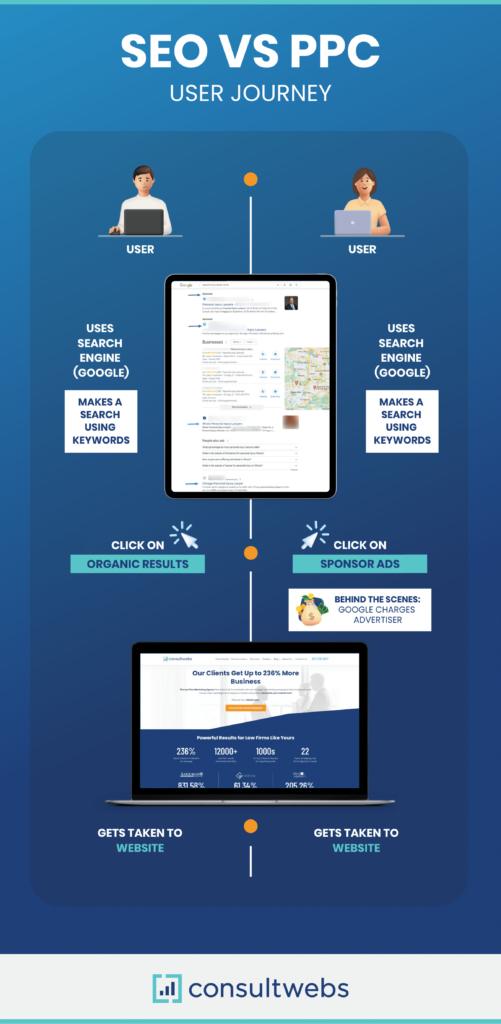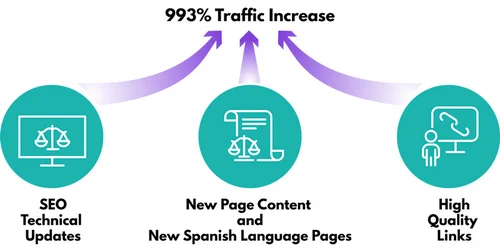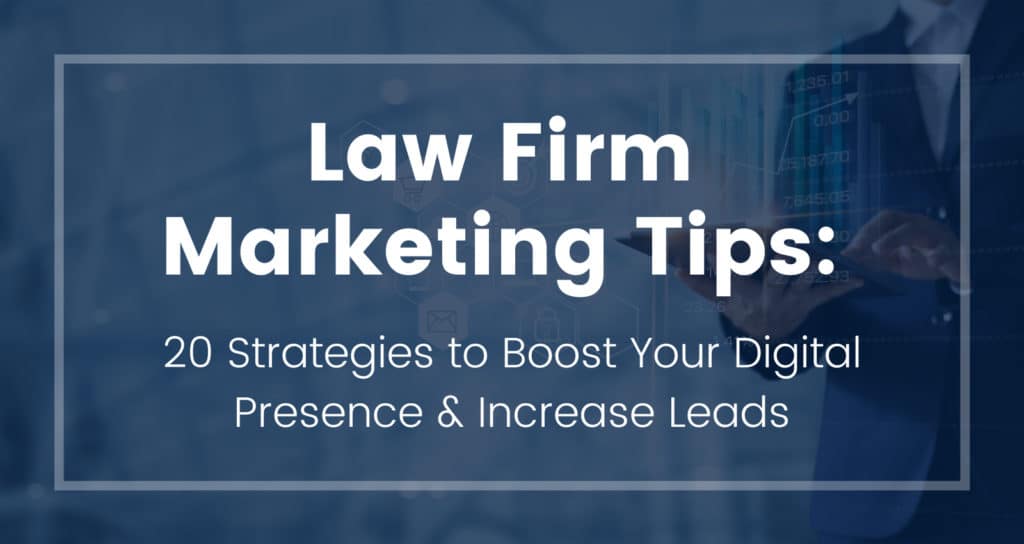Unlock the secrets to boosting your online presence as a lawyer with these essential SEO marketing tips. Don’t miss out!

Image courtesy of via DALL-E 3
Table of Contents
Introduction to SEO for Lawyers
In this section, we will introduce what SEO is and why it is important for lawyers to improve their online presence.
What is SEO?
SEO stands for Search Engine Optimization, which means making changes to your website and content to help it appear higher in search engine results like Google. Essentially, SEO helps your website get noticed by more people looking for the services you offer.
Why Lawyers Need SEO
It’s crucial for lawyers to be visible online because most people nowadays search for services on the internet. If your website doesn’t show up when someone searches for a lawyer in your area, you might be missing out on potential clients. By improving your SEO, you can increase your chances of being found by those who need your legal expertise.
Understanding Keywords
Keywords are like secret codes that help your website show up when people search for specific things on the internet. They are words or phrases that people type into search engines like Google to find what they are looking for. For example, if someone is searching for a lawyer who specializes in family law, they might type in keywords like “family lawyer near me” or “divorce attorney in [your city].” By using the right keywords on your website, you can make it easier for potential clients to find you online.
Choosing the Right Keywords
When picking keywords for your website, it’s important to think about what your potential clients might be searching for. Start by brainstorming words and phrases that relate to your legal practice, such as the types of cases you handle or the services you offer. You can also use tools like Google’s Keyword Planner to see what keywords are popular in your area. Remember to choose keywords that are relevant to your practice and have a decent amount of search traffic. By using the right keywords strategically on your website, you can improve your chances of showing up in search results when people are looking for a lawyer like you.
On-Page SEO Tips
When it comes to optimizing your website for search engines, on-page SEO is essential. In this section, we will explore some strategies to enhance your online presence by focusing on the content and elements present on your website.

Image courtesy of www.consultwebs.com via Google Images
Optimizing Your Website Content
One crucial aspect of on-page SEO is incorporating relevant keywords naturally into your website’s content. Keywords are the terms that people enter into search engines to find information. By including these keywords in your website’s content, you increase the chances of your site appearing in search results.
Remember to use keywords in a way that flows naturally within your content and provides value to your visitors. Avoid keyword stuffing, which is the practice of overloading content with keywords to manipulate search engine rankings. This can harm your site’s credibility and result in penalties from search engines.
Improving Metadata
Metadata refers to the information that appears in search engine results pages, such as titles, headings, and descriptions. Optimizing your metadata is crucial for on-page SEO because it helps search engines understand the relevance of your content to users’ search queries.
Ensure that your page titles accurately reflect the content on your website and include relevant keywords. Write compelling meta descriptions that entice users to click on your site in search results. Additionally, use headings to structure your content and make it easier for both users and search engines to understand.
Using Images and Alt Text
Including images on your website can enhance the user experience and make your content more engaging. However, it’s essential to optimize images for SEO by using descriptive filenames and alt text. Alt text is a brief description of an image that appears if the image fails to load or for visually impaired users.
When adding images to your site, use relevant keywords in the filenames and alt text to improve your SEO. This practice not only helps search engines understand your content better but also provides an opportunity to rank in image search results.
Off-Page SEO Strategies
When it comes to boosting your online presence as a lawyer, it’s not just about what’s on your website. Off-page SEO strategies are equally important in helping you climb up the search engine rankings and attract more clients. Let’s dive into some effective techniques that can elevate your online visibility.
Building Backlinks
Backlinks are like upvotes from other websites, telling search engines that your site is credible and worth showing to users. The more quality backlinks you have, the higher your website is likely to rank. You can get backlinks by reaching out to other websites in your industry and asking them to link to your content. Writing guest posts for reputable sites is also a great way to earn backlinks and showcase your expertise.
Guest Blogging
Guest blogging is a fantastic way to not only build backlinks but also to reach a wider audience and establish your authority in your field. By contributing valuable content to other websites, you can drive traffic back to your own site and increase your online visibility. Look for blogs or publications that cater to your target audience and offer to write a guest post that provides valuable insights or solutions.
Local SEO for Lawyers
When it comes to attracting clients as a lawyer, it’s essential to focus on local search engine optimization (SEO). Local SEO helps you appear in search results when potential clients in your area are looking for legal services. Here’s how you can optimize your online presence to target local clients effectively.

Image courtesy of neonambition.com via Google Images
Using Google My Business
One of the most powerful tools for local SEO is Google My Business. By creating and optimizing your Google My Business listing, you can ensure that your law firm shows up in local search results. Make sure to include your business name, address, phone number, and business hours. Encourage clients to leave reviews, as positive reviews can boost your visibility in local searches.
Local Listings and Reviews
Aside from Google My Business, getting listed in local directories can also improve your local SEO. Make sure your business is listed accurately on platforms like Yelp, Yellow Pages, and other local directories. These listings not only help potential clients find you but also validate your credibility as a local law firm. Encourage satisfied clients to leave reviews on these platforms to build trust and attract more clients.
Creating Quality Content
When it comes to improving your online presence as a lawyer, creating quality content is key. Not only does it engage visitors to your website, but it also plays a crucial role in enhancing your SEO. Let’s explore some ways you can produce top-notch content to attract potential clients and boost your website’s visibility.
Blogging
One effective way to connect with your audience and showcase your expertise is through blogging. By regularly posting informative and relevant articles on your website, you can establish yourself as a thought leader in your field. Consider writing about recent legal developments, case studies, or helpful tips for your readers. Engaging blog posts can not only attract visitors but also keep them coming back for more.
Producing Videos
In addition to written content, producing videos can be a powerful tool to engage visitors and improve your SEO. Videos can provide a more personal touch, allowing potential clients to get to know you and your practice. Consider creating videos that address common legal issues, share client testimonials, or offer behind-the-scenes glimpses of your work. Remember to optimize your videos with relevant keywords and descriptions to make them more searchable.
Incorporating a mix of blogs and videos into your content strategy can help you connect with a wider audience and keep them engaged on your website. Remember, quality content is not only about providing value to your visitors but also about improving your search engine rankings. So, get creative and start producing content that resonates with your audience!
Monitoring and Analyzing Results
In the world of SEO, it’s not just about implementing strategies and hoping for the best. Monitoring and analyzing the results of your efforts are crucial to understanding what’s working and what may need adjustment. In this section, we will explore how lawyers can effectively track and measure their SEO performance.

Image courtesy of lawrank.com via Google Images
Using Analytics Tools
One of the most valuable tools in the SEO toolbox is analytics software. Google Analytics, for example, can provide a wealth of data on your website traffic, user behavior, and more. By utilizing these tools, lawyers can gain insights into how their website is performing, which keywords are driving traffic, and where improvements can be made.
Measuring Success
When it comes to measuring the success of your SEO efforts, it’s essential to look beyond just the numbers. While metrics like website traffic and keyword rankings are important, they only tell part of the story. Lawyers should also pay attention to factors like user engagement, lead generation, and conversion rates to get a comprehensive view of their online performance.
Handling Common SEO Challenges
One common challenge lawyers may face with SEO is low traffic to their website. This could be due to various reasons, such as using the wrong keywords, poor website optimization, or low-quality content. To improve traffic, lawyers should focus on creating relevant and engaging content that includes the right keywords. Additionally, optimizing their website for speed and mobile devices can also help attract more visitors. By regularly updating and promoting their content, lawyers can increase their visibility and drive more traffic to their site.
Dealing with Competition
With the increasing number of law firms and lawyers using SEO to boost their online presence, standing out from the competition can be a challenge. To differentiate themselves, lawyers should focus on creating unique and valuable content that addresses the needs of their target audience. Building a strong online reputation through client reviews and testimonials can also help establish trust and credibility. Collaborating with other professionals in related fields or leveraging social media platforms for promotion can further set lawyers apart from their competitors.
Conclusion
So, lawyers, now you know how crucial SEO is for enhancing your online visibility and attracting potential clients. By implementing these SEO strategies, you can elevate your online presence and stay ahead in the competitive legal industry.

Image courtesy of comradeweb.com via Google Images
Remember these SEO tips:
Optimize your website with the right keywords and high-quality content. Utilize on-page and off-page SEO techniques to boost your search engine rankings. Maximize your local SEO efforts to attract clients in your area. Monitor and analyze your SEO performance to make necessary adjustments. And most importantly, create a strong online presence that showcases your expertise and credibility.
By following these SEO tips and staying consistent with your efforts, you can establish a strong digital presence that sets you apart from your competitors. Don’t wait any longer – start implementing these strategies today and watch your online visibility soar!
Want to turn these SEO insights into real results? Seorocket is an all-in-one AI SEO solution that uses the power of AI to analyze your competition and craft high-ranking content.
Seorocket offers a suite of powerful tools, including a Keyword Researcher to find the most profitable keywords, an AI Writer to generate unique and Google-friendly content, and an Automatic Publisher to schedule and publish your content directly to your website. Plus, you’ll get real-time performance tracking so you can see exactly what’s working and make adjustments as needed.
Stop just reading about SEO – take action with Seorocket and skyrocket your search rankings today. Sign up for a free trial and see the difference Seorocket can make for your website!
Frequently Asked Questions (FAQs)
What is the best way to start with SEO?
Starting with SEO can be overwhelming, but a great way to begin is by researching keywords related to your legal practice. These are the words or phrases people type into search engines when looking for services like yours. Once you have your keywords, incorporate them naturally into your website content, titles, and descriptions. This will help search engines understand what your website is about and improve your visibility online.
How long does it take to see results?
SEO is a long-term investment in your online presence and it can take time to see significant results. The timeline for improvement varies depending on the competitiveness of your market, the quality of your website, and the consistency of your SEO efforts. Generally, it can take anywhere from a few weeks to several months to notice positive changes in your search engine rankings and website traffic.
Can I do SEO myself or do I need a professional?
While it is possible to do SEO yourself, hiring a professional with expertise in digital marketing and SEO can save you time and ensure that your efforts are effective. Professionals have the knowledge and tools to analyze your website, identify areas for improvement, and implement strategies that can boost your online visibility. However, if you are willing to learn and dedicate time to research and implement SEO best practices, doing it yourself can also be a viable option.







